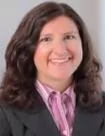Effective for tax years beginning after December 31, 2017, any additional tax or penalties resulting from a partnership audit will be assessed and collected at the partnership level in the year the audit is completed. Included in the Bipartisan Budget Act of 2015, these new audit rules calculate the partnership's imputed underpayment by applying the highest rate of tax in effect for the reviewed year to the partnership-level deficiency. This is a dramatic departure from the previous TEFRA partnership regime, which permitted partnership-level examinations but applied pass-through treatment to calculate and assess liability at the partner level.
There are two primary methods for avoiding partnership-level assessment:
Partnerships with 100 or fewer partners generally may elect out of the procedures if each partner is an individual, C corporation (or a foreign entity that would be treated as a C corporation if domestic), estate of a deceased partner, or S corporation. Unless regulations are issued which expand these categories, however, multitiered partnerships and those with nongrantor trusts as partners will be unable to elect out.
- Partnerships which are subject to the procedures may elect to issue adjusted K-1s to all reviewed-year partners, consistent with the audit adjustment. However, partners will pay interest on the adjustment at a rate which is 2 percentage points higher than the rate generally applicable to underpayments.
- Although regulations to expand and refine these procedures are forthcoming, they present significant concerns which every partnership needs to address. Beyond the decision whether to opt out when available, partnership and operating agreements should be amended to determine the proper allocation of partnership-level assessments, taking into account intervening sales, redemptions, mergers, and other changes in partnership ownership. In addition, because the new rules grant the partnership's "partner representative" different powers and responsibilities than granted to the "tax matters partner" under the TEFRA regime, partnerships will need to determine whether and how to limit such powers. Finally, any agreements which include the transfer of partnership interests should consider whether these new rules necessitate additional due diligence, indemnification, or escrow/security considerations.
Although many of the details of the new law will be explained in forthcoming regulations – which we will continue to track – we are currently working with clients to review existing partnership agreements and proposed transactions before the new rules take effect.
The content of this article is intended to provide a general guide to the subject matter. Specialist advice should be sought about your specific circumstances.

